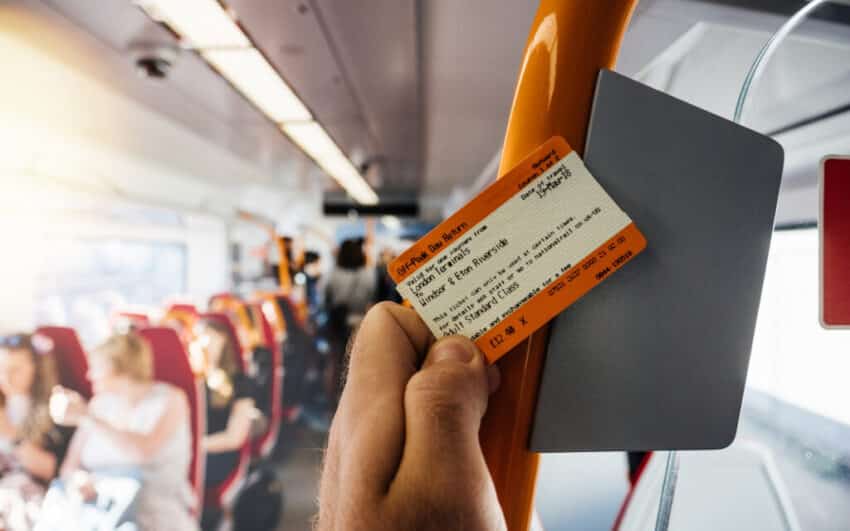Commuters face a 1.6% rise in rail fares next year – under a rule linking the increase to the latest inflation figure.
The Retail Prices Index (RPI) measure for July, published by the Office for National Statistics (ONS), is used to cap increases in regulated fares, which includes season tickets on most commuter routes.
It is lower than the RPI reading of 2.8% in July 2019 and the lowest for the month since 2015, meaning rail users should face smaller price rises next January than they did at the start of this year.
However there has been speculation about whether the government will delay the 2021 rise to encourage more passengers to return after the lockdown.
The use of the RPI figure to set rail fares is controversial because it is higher than the much more widely used Consumer Prices Index (CPI) measure of inflation, which stood at 1% in July according to the latest ONS release.
Both measures were higher than economists had expected – and the highest since March – with RPI climbing from 1.1% in June and CPI up from 0.6%.
The uptick was partly attributed to surging fuel costs – with petrol going up by the most in nearly a decade as international oil prices recovered following a slump caused by the coronavirus crisis.
Fashion seasons and the timing of sales have also been shaken up by the pandemic – so a fall in the cost of womenswear between June and July this year was smaller than in 2019, putting upward pressure on the annual rate of inflation.
In addition, prices for dental treatment, physiotherapy and haircuts have increased as the extra expense of protective equipment is passed on to customers.
The RPI figure for July is used by the UK, Scottish and Welsh governments to regulate around half of fares.

As well as many season tickets, these regulated fares include some off-peak return fares on long-distance journeys and tickets for travel around major cities at any time.
RPI is used as a cap on these fare rises, so the overall increase once they are implemented could be lower.
In January this year, they went up by an average 2.7%, according to the Office of Rail and Road, following July 2019’s RPI figure of 2.8%.
Rail companies are allowed to hike other fares such as advance and long-distance tickets at their own discretion.
A 1.6% rise in season ticket rises next January could see the annual cost of commuting between London and Brighton rise by £80 to £5,060, a Barrow-in-Furness to Preston season ticket rising by £69 to £4,353, and an Edinburgh-Glasgow fare climbing by £67 to £4,267.
Laura Suter, personal finance analyst at AJ Bell, said: “The leap in inflation in the past month is a blow for commuters.
“While lots of people have ditched the daily commute and are still working from home, it’s unlikely that will still be happening at the same scale by next year when price rises come in.
“Despite the hike the price rise will still be less than the increase that commuters saw this year, when prices rose by 2.8%.
“But continual years of high inflation increases and the insistence on using the RPI measure to calculate the price hike means that commuters are paying sky-high fares.”


